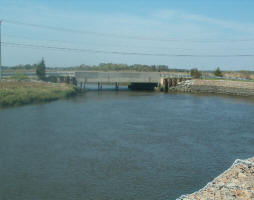 Striving for more environmentally friendly drinking water on Cyprus
Striving for more environmentally friendly drinking water on Cyprus
An EU-funded study explores the environmental impact of desalination on the island of Cyprus and proposes a more sustainable solution.
Cyprus, Europe’s most water-stressed nation, secures as much as 70 % of its drinking water supply through water desalination. Unfortunately, the island’s main desalination technology – reverse osmosis – is harmful to the environment. A team of scientists from Cyprus, the Netherlands and the United Kingdom sought to gain a clearer picture of this technology’s use on the island. In their paper, published in the journal ‘Desalination and Water Treatment’, they explore the scale of seawater desalination in the country, the technology’s impact on the environment and potential sustainable solutions.
The solution
The study proposes a promising solution that could deal with both the CO2 emission problem and the brine waste. This is renewables-driven (and waste heat-driven) desalination, followed by zero liquid discharge. This would make it possible to recover salts and also promote the decarbonisation of Cyprus’ desalination sector. “We should make more sensible use of salt and not dump it into the sea at all,” remarked Kuepper. “Sea salt is basically a mixture of raw materials and can be used, for example to produce lithium, a much-needed component for batteries. So we could run cars in Cyprus by solar power and sea salt.
| Contact information | n/a |
|---|---|
| News type | Inbrief |
| File link |
https://cordis.europa.eu/article/id/429070-striving-for-more-environmentally-friendly-drinking-water-on-cyprus?WT.mc_id=exp |
| Source of information | cordis.europa |
| Keyword(s) | Cyprus, water, desalination, drinking water |
| Subject(s) | DRINKING WATER |
| Geographical coverage | Cyprus, |
| News date | 16/02/2021 |
| Working language(s) | ENGLISH |
 you are not logged in
you are not logged in





